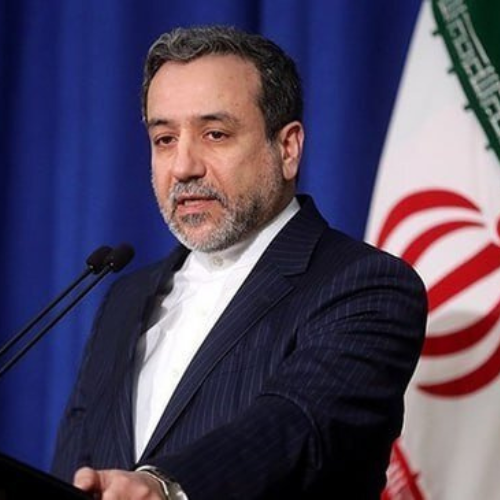Iran has issued a strong warning ahead of an important meeting with three European countries, known as the E3 nations — Britain, France, and Germany. The warning comes as talks about Iran’s nuclear program continue to escalate. Iran’s foreign minister, Abbas Araqchi, said that if the United Nations (UN) reimposes sanctions on Iran, the country could change its nuclear policies. This warning follows a similar message from Russia, showing that more countries are now openly challenging the West’s stance on nuclear policies.
Araqchi stated that if the UN sanctions are brought back, Iran may consider altering its nuclear strategy. Iran has been clear about its plans in the past — it does not prioritize developing nuclear weapons. However, it has also stated that if pressured too much by sanctions, it could shift its focus and develop a bomb. The country has confirmed it has the knowledge to create nuclear bombs, though this has not been part of its primary objectives.
Iran has always maintained that its nuclear program is for peaceful purposes, mainly to provide energy. But the reimposition of sanctions, a decision that some Western nations are considering, could push Iran to reconsider its nuclear policy. This is where tensions are building, and the stakes are getting higher.
UN Sanctions and Iran’s Nuclear Ambitions
The core issue revolves around the sanctions that have been placed on Iran in the past by the UN. These sanctions were lifted as part of a deal in which Iran agreed to limit its nuclear activities in exchange for relief from economic restrictions. However, the situation became tense when the United States pulled out of this agreement and pushed for the reinstatement of sanctions.
Iran has always stated that its nuclear ambitions are aimed at energy production, not weapons. But the reimposition of sanctions could lead to changes. Araqchi’s statement highlights how serious the country is about this matter. He suggested that if the UN sanctions return, it may no longer see any reason to continue holding back on developing a nuclear weapon. This could lead to a significant shift in Iran’s nuclear strategy, which could have serious consequences not only for the country itself but for the entire region.
EU Sanctions Against Iranian Shipping Companies Amid Ukraine Crisis
To understand the gravity of the situation, it’s important to know that Iran has been working to develop its nuclear industry for years. The country has a sophisticated program that involves building advanced centrifuges to enrich uranium. These centrifuges play a key role in making the material needed for both energy production and, potentially, nuclear weapons.
The E3 Meeting and the Nuclear Standoff
A crucial meeting was held in Geneva at the end of November between Iran and the E3 countries. This meeting was seen as a significant moment in the ongoing nuclear standoff. Araqchi spoke to the media ahead of the talks, making it clear that Iran was looking for a resolution, but one that met its conditions. He explained that Iran was willing to engage, but only if its demands were taken seriously.
At this meeting, the representatives of the E3 countries were expected to discuss the future of the nuclear deal and what steps would be taken to prevent the situation from escalating further. Iran’s nuclear program chief also made important announcements during this time, revealing that Iran had begun using more advanced centrifuges at its facility in Fordo. These centrifuges are designed to help Iran enrich uranium more effectively, which is a key step in both energy production and, potentially, bomb-making.
Iran’s decision to increase its use of advanced centrifuges signals a step forward in its nuclear capabilities. This could be seen as a response to growing pressure and the potential return of UN sanctions. Iran has always emphasized that its nuclear activities are for peaceful purposes, but the international community remains wary of its long-term intentions.
The stakes are high, and the outcome of the meeting in Geneva could determine the next steps in the nuclear standoff. For now, Iran is making it clear that it is ready to reconsider its nuclear strategy if pushed too hard by the return of sanctions.


